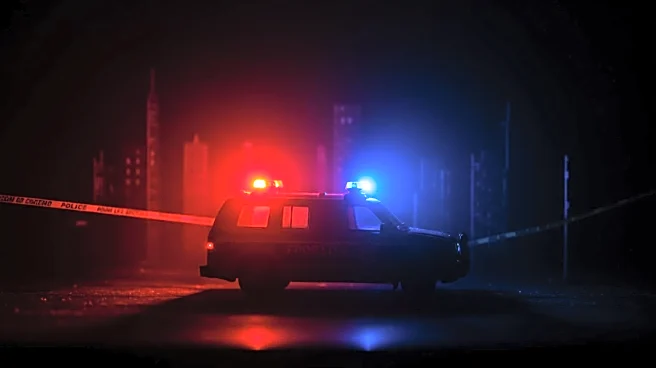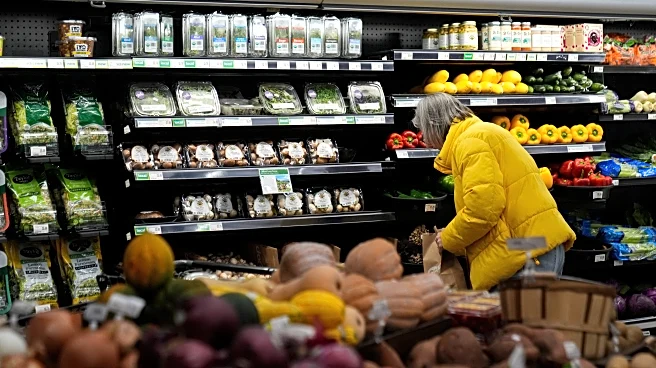What's Happening?
In Washington, D.C., President Trump has declared a 'crime emergency,' deploying federal officers and the U.S. National Guard to the city. This move has been met with resistance from local residents and has sparked protests. A notable incident involved Sean Dunn, who allegedly threw a Subway sandwich at a Customs and Border Patrol officer, becoming a symbol of the militarized police presence. The White House has released a video of Dunn's arrest, emphasizing its stance on law enforcement. The situation has led to increased tension in the city, with posters and protests using sandwich imagery as a form of resistance.
Why It's Important?
The deployment of federal officers and the National Guard in Washington, D.C., under President Trump's directive, raises significant concerns about the militarization of law enforcement and its impact on civil liberties. The sandwich-throwing incident, while seemingly trivial, has become a focal point for criticism of the administration's approach to policing. This situation underscores the broader debate over federal intervention in local law enforcement and the balance between security and civil rights. The administration's actions could set a precedent for similar interventions in other cities, affecting public policy and societal norms regarding law enforcement.
What's Next?
The ongoing protests and public discourse around President Trump's crime emergency in D.C. are likely to continue, with potential legal challenges and political debates. Civil rights groups may increase their advocacy against the militarization of police forces, while the administration may further justify its actions by highlighting crime statistics. The situation could influence upcoming elections and policy decisions, as stakeholders assess the effectiveness and ethical implications of such federal interventions.











